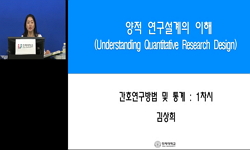Though it is true that attentions have been paid to family support for families of children with disabilities recently and that emphasis has been put on the family support that are comprehensive and family-centered, there is a lack of exemplary model ...
http://chineseinput.net/에서 pinyin(병음)방식으로 중국어를 변환할 수 있습니다.
변환된 중국어를 복사하여 사용하시면 됩니다.
- 中文 을 입력하시려면 zhongwen을 입력하시고 space를누르시면됩니다.
- 北京 을 입력하시려면 beijing을 입력하시고 space를 누르시면 됩니다.
부가정보
다국어 초록 (Multilingual Abstract)
Though it is true that attentions have been paid to family support for families of children with disabilities recently and that emphasis has been put on the family support that are comprehensive and family-centered, there is a lack of exemplary model about specific contents and strategies to provide family support for low-income families of children with disabilities. The purpose of this study was to establish a practical and comprehensive family support model for low-income families of children with disabilities through the qualitative investigation of these families' experiences, needs, and perceptions. Eighteen primary caregivers of children with disabilities and 13 professionals who work with these families and their children were interviewed. From the qualitative analysis, four themes emerged:(1) the impact of poverty on families, (2) existing issues in current system, (3) needs of the families, and (4) the factors that determine the success of family support efforts. Finally, the critical elements and future directions of the family support model for these families were presented based on the results of the study.











